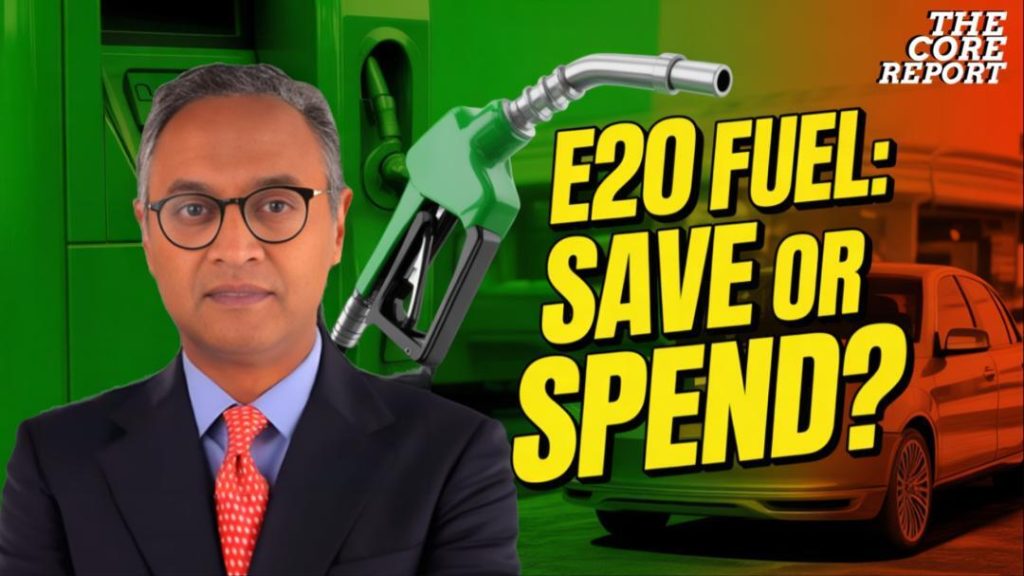
E20 Fuel in India: Benefits, Risks & What Vehicle Owners Must Know
India has been steadily moving towards a cleaner and more sustainable energy future, and one of the key initiatives in this direction is the introduction of E20 fuel, a blend of 20% ethanol and 80% petrol. The aim of this blended fuel is to reduce carbon emissions, boost energy security, and support farmers by creating a market for sugarcane and other biomass-based ethanol production. As the government moves forward with its plans to make E20 fuel mandatory for all new vehicles by 2025, it is essential for vehicle owners to understand the benefits, risks, and what they need to know about this new fuel.
Benefits of E20 Fuel
The introduction of E20 fuel is expected to bring numerous benefits to the Indian economy and environment. Some of the key advantages of E20 fuel include:
- Reduced Carbon Emissions: E20 fuel is expected to reduce greenhouse gas emissions by up to 20% compared to conventional petrol. This is because ethanol is a renewable and carbon-neutral fuel, which means that the amount of carbon dioxide emitted during combustion is equal to the amount of carbon dioxide absorbed by the plant during its growth.
- Improved Fuel Efficiency: E20 fuel is expected to improve fuel efficiency by up to 10% compared to conventional petrol. This is because ethanol is a cleaner-burning fuel that produces less soot and particulate matter, which can clog engines and reduce fuel efficiency.
- Boost to Energy Security: E20 fuel is expected to reduce India’s dependence on imported fossil fuels, which can have a significant impact on the country’s energy security. By producing ethanol domestically, India can reduce its reliance on foreign oil and improve its energy self-sufficiency.
- Support to Farmers: The production of ethanol from sugarcane and other biomass is expected to create a new market for farmers, providing them with an additional source of income. This can help to improve the livelihoods of farmers and reduce poverty in rural areas.
Risks of E20 Fuel
While E20 fuel has several benefits, there are also some risks and challenges associated with its use. Some of the key concerns include:
- Engine Wear: Older vehicles not designed to run on E20 fuel may experience engine wear and tear, which can lead to increased maintenance costs and reduced fuel efficiency.
- Fuel System Corrosion: The ethanol content in E20 fuel can corrode fuel systems and engine components, which can lead to costly repairs and downtime.
- Mileage Loss: Some vehicle owners may experience a loss of mileage when switching to E20 fuel, which can be a significant concern for those who rely on their vehicles for daily commutes or business purposes.
- Incompatibility with Older Vehicles: E20 fuel is not compatible with older vehicles that are not designed to run on this blend. This can create problems for vehicle owners who are not sure whether their vehicle is compatible with E20 fuel.
What Vehicle Owners Must Know
To ensure a smooth transition to E20 fuel, vehicle owners must take certain precautions and be aware of the following:
- Check Your Vehicle’s Compatibility: Before switching to E20 fuel, vehicle owners must check whether their vehicle is compatible with this blend. Older vehicles not designed to run on E20 fuel may experience engine wear, fuel system corrosion, and mileage loss if they are not designed to handle the ethanol content.
- Use the Right Fuel: Vehicle owners must ensure that they are using the right fuel for their vehicle. E20 fuel is not compatible with all vehicles, so it is essential to check the fuel type before filling up.
- Regular Maintenance: Vehicle owners must ensure that their vehicle is regularly maintained to prevent engine wear and tear. This includes regular oil changes, filter replacements, and other maintenance tasks recommended by the vehicle manufacturer.
- Monitor Fuel Efficiency: Vehicle owners must monitor their fuel efficiency and performance after switching to E20 fuel. This can help them identify any potential issues or problems that may arise.
Government Initiatives and Plans
The Indian government has been actively promoting the use of E20 fuel and has implemented several initiatives to encourage its adoption. Some of the key initiatives include:
- Mandatory E20 Fuel for New Vehicles: The government has made it mandatory for all new vehicles to be E20-compliant by 2025. This will ensure that all new vehicles are designed to run on E20 fuel and will reduce the risk of engine wear, fuel system corrosion, and mileage loss.
- Incentives for Vehicle Owners: The government has offered incentives to vehicle owners who switch to E20 fuel, including rebates and discounts on fuel purchases.
- Public Awareness Campaigns: The government has launched public awareness campaigns to educate vehicle owners about the benefits and risks of E20 fuel. This includes campaigns to promote the use of E20 fuel, inform vehicle owners about the importance of regular maintenance, and address concerns about engine wear and fuel system corrosion.
Conclusion
E20 fuel is an important initiative that can help India reduce its carbon emissions, boost energy security, and support farmers. While there are some risks and challenges associated with the use of E20 fuel, vehicle owners can take certain precautions and be aware of the benefits and risks to ensure a smooth transition. By 2025, all new vehicles will be E20-compliant, which will ease adaptation concerns and ensure that the transition to E20 fuel is seamless.
Source:






